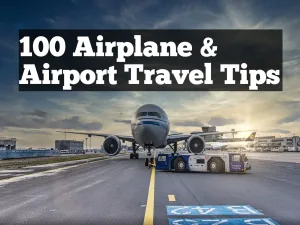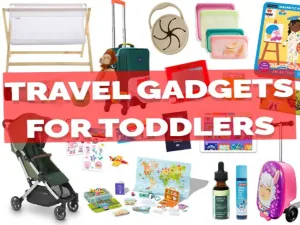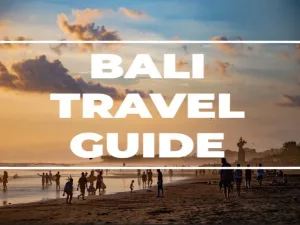The anticipation of unfamiliar surroundings, long flights, crowded spaces, and the fear of the unknown can all contribute to travel anxiety. However, there are several practical steps you can take to alleviate these feelings and ensure a smoother journey. By incorporating simple techniques such as deep breathing and engaging in enjoyable activities, you can effectively manage your travel anxiety and fully enjoy your trip.
We will explore various tips and strategies to help you overcome travel anxiety and make your travels more enjoyable.
Understanding Travel Anxiety
Travel anxiety can be overwhelming, but there are tips to help manage it. Implement relaxation techniques, plan and prepare ahead, and take small steps to ease into your travel journey.
What Is Travel Anxiety?
Travel anxiety is a common condition that many people experience when planning for or embarking on a journey, be it a short trip or a long vacation. It is a type of anxiety disorder that can manifest in various ways, such as nervousness, fear, or unease, specifically related to traveling and being away from familiar surroundings. Travel anxiety can affect individuals of all ages and backgrounds, and it’s important to recognize and understand its impact in order to effectively manage and minimize its effects on your travel experiences.
Common Triggers Of Travel Anxiety
Travel anxiety can be triggered by a range of factors that vary from person to person. Here are some common triggers that you may relate to or encounter:
- Unknown environments: Being in an unfamiliar place can be unsettling for some individuals. The unknown can amplify feelings of anxiety, as you may have concerns about navigating new surroundings, communicating in a foreign language, or finding your way around.
- Transportation worries: Travel often involves various modes of transportation, such as planes, trains, or buses. For individuals with travel anxiety, the idea of being in a confined space or experiencing turbulence can trigger feelings of fear and discomfort.
- Separation anxiety: Leaving loved ones behind or being away from the security of home can lead to separation anxiety. This type of anxiety can be especially challenging for individuals who have a strong attachment to their support systems or feel uneasy when outside their comfort zone.
- Unexpected changes: Travel plans can quickly change due to unforeseen circumstances, such as flight delays, cancellations, or accommodation issues. These unexpected changes can be particularly challenging for individuals with travel anxiety, as they disrupt the sense of control and stability.
- Packing and preparation stress: The process of packing, planning, and organizing for a trip can be overwhelming for some individuals. Anxiety can arise from concerns about forgetting essential items, the pressure to have a perfect itinerary, or worrying about health and safety precautions.
How Anxiety Affects Your Travel Experience
Anxiety can significantly impact your travel experience, potentially leading to distress and preventing you from fully enjoying your trip. Here’s how anxiety can affect various aspects of your journey:
- Restricted exploration: When anxiety takes hold, it can limit your willingness to explore new places and try new experiences. Fears of the unknown or discomfort with unfamiliar surroundings can make you more inclined to stick to familiar areas or avoid certain activities.
- Heightened stress levels: Traveling can already be a stressful experience, but anxiety can exacerbate these feelings. It may amplify your stress levels, making it difficult to relax or enjoy the moment.
- Impacted decision-making: Anxiety can cloud your judgment and lead to indecisiveness. Making choices can become more challenging, as fears and worries may influence your ability to weigh options and make confident decisions.
- Interpersonal challenges: Traveling often involves interacting with new people, whether it’s fellow travelers or locals. Anxiety can make social interactions more challenging, leading to feelings of self-consciousness, difficulty initiating conversations, or avoiding interactions altogether.
- Physical symptoms: Anxiety can manifest in physical symptoms, such as increased heart rate, sweaty palms, or stomach discomfort. These symptoms can be unsettling and further contribute to feelings of unease during your trip.
It’s important to acknowledge that travel anxiety is valid and experienced by many individuals. The good news is that there are strategies and techniques that can help manage and alleviate its effects, allowing you to have a more enjoyable and fulfilling travel experience.
Preparation And Planning
When it comes to traveling, preparation and planning are key to minimizing travel anxiety. By taking the time to research your destination, create a detailed itinerary, and pack essentials for comfort and security, you can set yourself up for a smooth and stress-free trip. In this section, we will explore these important aspects of preparation and planning to help you overcome travel anxiety and make the most of your journey.
Researching Your Destination
Before embarking on your trip, it is crucial to conduct thorough research about your destination. This will not only help you gain valuable insights into the local culture, customs, and traditions, but also ensure that you are well-prepared for any potential challenges or surprises that may arise during your travels.
- Obtain reliable information from reputable travel websites, guidebooks, or blogs.
- Learn about the local laws, customs, and social etiquette to avoid any unintentional offenses.
- Check travel advisories and government websites for any safety or security concerns.
- Research transportation options, local currency, and communication networks to ease navigation and connectivity.
By arming yourself with knowledge about your destination, you can approach your trip with confidence and reduce feelings of anxiety.
Creating A Detailed Itinerary
Having a well-structured itinerary can provide a sense of structure and control, alleviating travel anxiety. Here’s how you can create a detailed itinerary:
- Identify the must-see attractions and activities that interest you the most.
- Allocate sufficient time for each activity, considering travel time, opening hours, and potential waits.
- Balance your schedule by alternating between sightseeing, relaxation, and free time to prevent burnout.
- Research and pre-book tickets for popular attractions or events to avoid disappointments and long queues.
A well-organized itinerary not only ensures that you make the most of your time but also provides a sense of reassurance that everything is under control.
Packing Essentials For Comfort And Security
Packing can be a source of anxiety for many travelers, but with a few planning strategies, you can pack efficiently and effectively. Here are some essential items you should consider:
| Comfort | Security |
|---|---|
|
|
By packing the essentials for comfort and security, you can ensure a more enjoyable and worry-free travel experience.
Managing Travel Anxiety Before Departure
Preparing for a trip can be both exciting and overwhelming. For those who experience travel anxiety, the days leading up to departure can be particularly challenging. But fear not, there are effective strategies you can employ to manage your travel anxiety and make the pre-departure process smoother. In this blog post, we will explore three key ways to alleviate travel anxiety before you even take off.
Practicing Relaxation Techniques
One of the most helpful ways to calm your nerves and minimize travel anxiety is by implementing relaxation techniques. Taking a few minutes each day to practice relaxation exercises can work wonders in reducing stress levels. Techniques such as deep breathing, progressive muscle relaxation, and visualization can help you let go of tension and create a sense of calmness.
Here’s a simple deep breathing exercise you can try:
- Sit or lie down in a comfortable position.
- Close your eyes and take a slow, deep breath in through your nose, counting to four.
- Hold your breath for a count of four.
- Exhale slowly through your mouth, counting to four.
- Repeat this breathing pattern for several minutes, focusing on the sensation of your breath entering and leaving your body.
Utilizing Meditation And Mindfulness Exercises
Another effective way to manage travel anxiety before departure is by incorporating meditation and mindfulness exercises into your routine. Both practices help you stay present and focused, minimizing worry and negative thoughts. Consider setting aside a few minutes each day to meditate or engage in mindfulness exercises such as body scans or mindful walking.
If you’re new to meditation, you can start with this simple practice:
- Find a quiet and comfortable space where you won’t be disturbed.
- Sit in a relaxed position, either on a cushion or a chair with your back straight.
- Close your eyes and bring your attention to your breath.
- Observe the sensation of your breath as you inhale and exhale, without trying to change it.
- If your mind starts to wander, gently bring your focus back to your breath.
- Continue this practice for a few minutes, gradually increasing the duration as you become more comfortable.
Seeking Support From Friends And Family
Travel anxiety can feel isolating, but it’s important to remember that you don’t have to face it alone. Sharing your concerns with supportive friends and family members can provide you with comfort and reassurance. Talking about your anxieties and discussing your travel plans with loved ones can help you gain perspective and alleviate some of the worries you might have.
Additionally, reaching out to friends or family who have experience with travel anxiety can be particularly beneficial. They may share helpful tips or offer advice based on their own experiences, providing you with practical strategies to manage your anxiety before departure.
In conclusion, managing travel anxiety before departure requires proactive steps. By incorporating relaxation techniques, meditation and mindfulness exercises, and seeking support from friends and family, you can significantly reduce your pre-trip jitters. Remember, your travel experience should be exciting and enjoyable, and with the right strategies in place, you can embark on your journey with confidence and peace of mind.
Conquering Transportation Anxiety
Traveling can be an exciting and enriching experience, but for those struggling with transportation anxiety, it can also be a source of stress and worry. Whether it’s the fear of flying, motion sickness, or a fear of public transportation, these anxieties can significantly impact a person’s ability to enjoy their journey. However, with the right tips and strategies, it is possible to overcome these fears and conquer transportation anxiety. In this section, we will explore three common transportation anxieties and provide practical tips for overcoming them.
Overcoming Fear Of Flying
For many individuals, fear of flying is a major hurdle when it comes to traveling. The mere thought of stepping onto an airplane can trigger intense anxiety and panic. Fortunately, there are several strategies that can help you manage and overcome this fear:
- Education and Knowledge: Educate yourself about how airplanes work, the safety measures in place, and statistics regarding the safety of air travel. This knowledge can help alleviate some of your fears and provide reassurance.
- Breathing and Relaxation Techniques: Practice deep breathing exercises and relaxation techniques to help calm your mind and body during the flight. Focus on slow, deep breaths to help regulate your anxiety.
- Distraction Techniques: Keep your mind occupied during the flight by engaging in activities such as reading a book, listening to music, or watching a movie. This can help shift your focus away from your fears.
Coping With Motion Sickness
Motion sickness is another common transportation anxiety that can make traveling a challenge. The symptoms of motion sickness, including nausea, dizziness, and vomiting, can be debilitating. However, there are strategies you can employ to cope with motion sickness:
- Choose the Right Seat: Opt for a seat that offers a stable view of the horizon, such as a window seat on a plane or a seat near the front of a bus or train. This can help reduce the sensations that trigger motion sickness.
- Focus on the Horizon: Fixing your gaze on a stable object, like the horizon or a distant point, can help alleviate motion sickness symptoms. Avoid looking down or watching moving objects, as this can exacerbate the sensations.
- Medications and Remedies: Consult with your healthcare provider about over-the-counter or prescription medications that can help alleviate motion sickness. Additionally, there are natural remedies, such as ginger, that can provide relief for some individuals.
Dealing With Fear Of Public Transportation
Public transportation anxiety can stem from various concerns, including fear of crowds, fear of getting lost, or fear of being in unfamiliar surroundings. To help manage and overcome this fear, consider the following tips:
- Plan Ahead: Familiarize yourself with the routes, schedules, and maps of the public transportation system you will be using. This preparedness can help alleviate anxiety about getting lost or being unsure of where to go.
- Travel during Off-Peak Hours: If possible, try to avoid traveling during rush hour or peak times when public transportation tends to be more crowded. Traveling during quieter periods can help reduce feelings of anxiety.
- Bring a Travel Companion: If you’re feeling uneasy about using public transportation alone, consider bringing a friend or travel companion with you. Having someone by your side can provide support and reassurance.
Coping Strategies For Anxious Travelers
Traveling, while exciting and exhilarating, can also be a source of anxiety and stress for many individuals. If you’re someone who tends to experience travel anxiety, it’s important to have coping strategies in place to make your journey more enjoyable and worry-free. In this section, we will discuss some effective methods to cope with travel anxiety, including adopting a positive mindset, taking breaks and self-care routines, as well as engaging in stress-reducing activities. By applying these strategies, you can minimize anxiety and fully embrace the wonders of travel.
Adopting A Positive Mindset
One of the most powerful ways to combat travel anxiety is by adopting a positive mindset. Remind yourself that traveling is an opportunity for growth, adventure, and self-discovery. Instead of focusing on potential obstacles or negative scenarios, try to embrace the excitement of the unknown. Visualize your trip going smoothly and imagine yourself having a fabulous time. This positive visualization can help alleviate anxiety and provide you with the confidence to navigate any challenges along the way.
Taking Breaks And Self-care Routines
It’s essential to prioritize self-care while traveling to keep anxiety at bay. Be mindful of your physical and mental well-being by taking regular breaks and incorporating self-care routines into your journey. Schedule time to relax, meditate, or engage in activities that bring you joy. This can include going for a walk in nature, finding a quiet spot to read a book, or indulging in a spa treatment. By taking breaks and practicing self-care, you give yourself the opportunity to recharge and rejuvenate, allowing you to better manage any anxious feelings that may arise.
Engaging In Stress-reducing Activities
Engaging in stress-reducing activities can significantly alleviate travel anxiety and promote a sense of calm. Consider incorporating activities such as deep breathing exercises, yoga, or mindfulness techniques into your travel routine. These practices help reduce stress hormones and promote relaxation. Additionally, listening to calming music, practicing visualization techniques, or journaling your thoughts and feelings can also provide a sense of relief and tranquility. Experiment with different stress-reducing activities and find what works best for you to create a personalized anxiety-reduction toolkit that you can use while traveling.
Practical Tips For Navigating New Places
Traveling to new places can be an exciting adventure, but it can also induce anxiety, especially if you’re unfamiliar with the local culture and customs. Navigating unknown territories may seem overwhelming, but with some practical tips, you can confidently explore new destinations while keeping travel anxiety at bay. Here are some useful tips to help you navigate new places with ease:
Familiarizing Yourself With The Local Culture
One of the best ways to feel more comfortable and reduce anxiety when exploring new places is by familiarizing yourself with the local culture. Before your trip, take some time to research and understand the customs, traditions, and etiquette of the destination you’ll be visiting. By doing so, you’ll be able to better connect with the locals and show respect towards their culture.
Discovering Ways To Communicate Effectively
Communication is key when navigating new places, especially if there’s a language barrier. To ease your anxiety and ensure effective communication, consider learning a few basic phrases in the local language. Simple greetings, thank you, and asking for directions can go a long way in helping you overcome language barriers and engage with locals more easily. Additionally, having a translation app or a pocket-sized phrasebook can be invaluable tools in facilitating communication.
Using Technology For Navigation And Safety
In this digital age, technology has become an indispensable part of travel. Take advantage of various apps and online tools that can enhance your navigation and safety. Install a reliable map app or use GPS navigation to help you find your way around unfamiliar streets. It’s also a good practice to save offline maps to ensure you have access to them even without internet connectivity. Moreover, use safety apps that provide real-time updates on local emergencies, travel advisories, and nearby facilities.
Dealing With Unexpected Situations
Traveling can be an exhilarating experience, but sometimes unexpected situations can arise and throw a wrench in your plans. It’s important to be prepared and know how to handle these unexpected bumps in the road. Whether it’s flight delays and cancellations, lost luggage, or other travel mishaps, being equipped with the right tips and strategies can help you navigate through these challenges smoothly.
Managing Flight Delays And Cancellations
Flight delays and cancellations can be frustrating, especially when you have a tight schedule to adhere to. However, there are ways to manage these situations and minimize the impact on your travel plans. Here are a few useful tips:
- Stay informed: Keep a close eye on your flight status by regularly checking the airline’s website or using a flight-tracking app. This will help you stay updated on any changes and allow you to plan accordingly.
- Contact the airline: If you’re faced with a flight delay or cancellation, don’t hesitate to contact the airline directly. They may be able to provide alternative arrangements or compensation, depending on the circumstances.
- Be prepared: Carry essential items such as a change of clothes, toiletries, and snacks in your carry-on luggage. This will ensure you have the necessities in case of an unexpected overnight stay or lengthy delays.
Handling Lost Luggage And Travel Mishaps
Discovering that your luggage has gone missing or encountering other travel mishaps can be stressful. However, knowing how to handle these situations can help alleviate some of the anxiety. Consider the following tips:
- Report lost luggage immediately: If your luggage doesn’t appear on the carousel, report it to the airline’s baggage service desk right away. Provide detailed information and keep copies of the necessary documentation for future reference.
- Know your rights: Familiarize yourself with the airline’s policies regarding lost luggage and compensation. Understanding your rights can help you navigate the process more effectively and ensure you receive the appropriate assistance.
- Keep essential items in your carry-on: To mitigate the impact of lost luggage, pack essential items such as medication, toiletries, and a change of clothes in your carry-on bag. This way, you’ll have immediate access to the necessities even if your checked-in luggage is temporarily misplaced.
- Stay calm and document: In the event of a travel mishap, it’s essential to remain calm. Document any incidents, take photos if necessary, and keep records of any conversations or exchanges with airline or hotel staff. This documentation can be helpful for any potential claims or reimbursements later on.
Seeking Assistance From Local Authorities
When traveling in a foreign country, seeking assistance from local authorities can provide you with support and guidance in challenging situations. Here’s what you need to keep in mind:
- Know emergency contact numbers: Before your trip, research and note down the emergency contact numbers of local authorities, such as the police, embassy, or consulate. This information will be vital in case of emergencies or when you need immediate help.
- Communicate effectively: If you find yourself in an unexpected or potentially dangerous situation, it’s crucial to communicate clearly with the local authorities. Remain calm, state your situation concisely, and provide any necessary identification or documentation they may request.
- Follow local laws and customs: It’s important to familiarize yourself with the laws and customs of the country you’re visiting. Respect local regulations, customs, and cultural sensitivities to avoid any unnecessary complications or misunderstandings.
Reflection And Growth: Embracing The Journey
Travel anxiety is a common experience that can often dampen the excitement of exploring new destinations. However, by embracing the journey and engaging in reflection and growth, we can overcome these anxious feelings and develop a sense of confidence that allows us to fully enjoy our travel adventures. In this section, we will delve into the importance of celebrating victories over travel anxiety, learning from challenging experiences, and building the necessary confidence for future journeys.
Strongcelebrating Victories Over Travel Anxiety/strong
One of the most powerful ways to combat travel anxiety is to acknowledge and celebrate each victorious moment along the way. Whether it’s successfully navigating a bustling airport, boarding a plane without feeling overwhelmed, or confidently conversing with locals in a foreign language, each accomplishment deserves recognition. By taking the time to celebrate these victories, you reinforce positive associations with travel and boost your self-confidence.
To celebrate your triumphs, consider creating a travel diary and documenting moments that make you proud. Reflect on how you felt before and after each achievement, highlighting the progress you’ve made in conquering your travel anxiety. By doing so, you create a tangible reminder of your growth, motivating you to continue embracing the journey.
Stronglearning From Challenging Experiences/strong
Challenging experiences during your travels can provide remarkable opportunities for personal growth and learning. While encountering difficulties may initially amplify your travel anxiety, reframing these experiences as valuable lessons can help alleviate worry and build resilience for future adventures.
When faced with a challenging situation, take a moment to reflect on what went wrong and how you can prevent similar issues in the future. Perhaps you underestimated the time it takes to get to your next destination or overlooked the importance of researching local customs. Use these moments as learning opportunities to refine your travel planning and preparation skills.
Additionally, seek support from fellow travelers or local experts who can provide insights, advice, and possible solutions. Engaging in meaningful conversations with others who have experienced similar challenges will not only help you gain a different perspective but also remind you that you are not alone on your travel journey.
Strongbuilding Confidence For Future Travel Adventures/strong
Confidence is key when it comes to managing travel anxiety and fully embracing the journey. Building confidence requires a multifaceted approach, combining mental preparation, practical skills development, and a positive mindset.
Engaging in calming techniques such as deep breathing exercises, meditation, or visualization can help alleviate anxiety before and during your travels. Taking time to visualize successful and enjoyable travel experiences can rewire your brain to associate positive emotions with travel, gradually reducing anxiety levels.
Furthermore, actively seeking out opportunities for skill development in areas that trigger anxiety can provide a significant boost in confidence. Whether it’s attending a language course to improve communication skills or practicing navigation in unfamiliar surroundings, each small step towards mastery will increase your self-assurance.
Finally, maintaining a positive and adaptive mindset is crucial for building confidence. Recognize that setbacks and unexpected challenges are normal parts of the travel experience. Embrace the unpredictable nature of the journey as an opportunity for personal growth and adventure.
Frequently Asked Questions Of Travel Anxiety Tips
How Can I Reduce Travel Anxiety?
To reduce travel anxiety, try deep breathing exercises, visualization techniques, and mindfulness. Plan ahead by researching your destination, creating a packing list, and making a travel itinerary. Stay organized, take breaks when needed, and practice self-care during your trip.
What Causes Travel Anxiety?
Travel anxiety can be caused by various factors, including fear of flying, fear of the unknown, worry about safety or health issues, stress from planning and organization, and being away from home comforts. Understanding the underlying causes can help in managing and overcoming travel anxiety.
How Can I Prepare For A Smooth Trip?
Prepare for a smooth trip by organizing your travel documents, packing essentials, and creating a checklist. Book accommodations and transportation in advance, check for travel advisories, and notify your bank of your travel plans. Research your destination and learn about local customs and emergency contacts.
How Do I Deal With Travel Anxiety While Flying?
Dealing with travel anxiety while flying can be challenging. Practice relaxation techniques like deep breathing, listen to calming music, and distract yourself with a book or movie. Focus on positive aspects of flying and remind yourself of the destination and exciting experiences awaiting you.
Consider seeking professional help if needed.
Conclusion
Conquering travel anxiety is crucial for anyone seeking to enjoy their journey to the fullest. By implementing the tips and strategies mentioned in this blog post, such as planning ahead, practicing deep breathing techniques, and embracing mindfulness, you can effectively alleviate your travel anxiety.
Remember, self-care and self-awareness are key in promoting a calm and stress-free travel experience. So go ahead, book that ticket, and embark on your next adventure with confidence!










